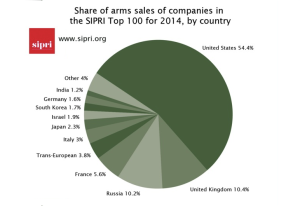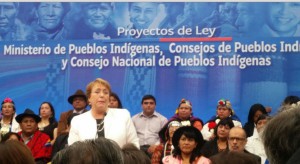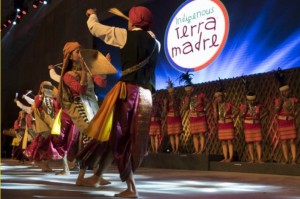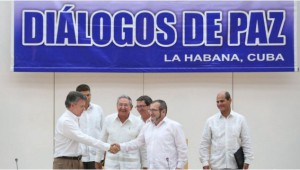As we enter the new year of 2016, we may ask if the culture of peace continues to advance on all the fronts that we covered in the various CPNN bulletins of 2015:
WELCOME THE REFUGEES (December): Despite the political resistance to refugees in Europe, there are also social movements in defense of the refugees. This was expressed recently by rallies throughout Europe marking the Global Day of Action against Racism. The Madrid Rally was held under the slogan: “We are all migrants and refugees, we all have rights.” Another slogan was “No to NATO!, making it clear that the influx of refugees is largely due to the military interventions by NATO in Africa and the Middle East.
CULTURE OF PEACE IN LATIN AMERICA (November): There are peace initiatives underway throughout Latin America. The November bulletin describes actions in Cuba, Bolivia, Argentina, Brazil, Nicaragua, Guatemala, Chile, Colombia and Honduras. Last month 500 delegates from 18 countries and 34 education trade unions in Latin America met in Costa Rica in the third meeting of the Pedagogical Movement to renew the cohesion and agenda for the future of education in Latin America.
COLOMBIA PREPARES FOR PEACE (September): The biggest news for peace in Latin America last year was the progress of the peace process in Colombia. As indicated in the chronology published this month, we can expect the signing of peace accords in the month of March.
NEEDED: POLITICAL WILL AT COP21 (August): Although experts regret the lack of political will at the Climate Summit (see last month’s bulletin), the year 2015 has seen “amazing advances in renewable energy,” which raise hopes that we can reverse the process of global warming and climate change despite the failure of the nations to curb their reliance on fossil fuels.
CONFRONTING TERRORISM WITHOUT VIOLENCE (July): The mayors of Paris and Madrid, the cities of Europe that have suffered the most from terrorist attacks have announed that they will hold an international peace forum in response. Rather than promoting military responses, they propose education for non-violence. Similarly, UN Secretary-General Ban Ki-Moon has released a UN plan of action to confront violent extremism that calls for cultural rather than military measures. Since “extremism flourishes when human rights are violated, political space is shrunk, aspirations for inclusion are ignored, and too many people – especially young people – lack prospects and meaning in their lives. . . . [we need to emphasize] the critical elements for success: Good governance. The rule of law. Political participation. Quality education and decent jobs. Full respect for human rights. . . a special effort to reach out to young people and recognize their potential as peacebuilders.” The latter element is addressed in detail in the recent resolution 2250 of the United Nations Security Council on Youth, Peace & Security.
MOVEMENTS FOR FOOD SOVEREIGNTY (June): Six hundred representatives of native communities around the world recently gathered in Shillong, northeastern India, for Indigenous Terra Madre (ITM), an event that helps forge a global network of indigenous peoples, activists and their supporters. “The truth is that 500 million small household food communities feed 70 percent of the world, yet they are treated the worst of all”
THE ANTI-AUSTERITY SPRING (May): The Prime Minister of Portugal has said that the first measures of his government this year will begin to end the country impoverishment and social decline due to the policy of austerity. He came to power in the recent elections as a socialist candidate opposing austerity and is governing in coalition with the marxists parties and the communists. In Spain, Podemos which gained a large vote by opposing austerity is now trying to make a similar coalition with left political parties.
WOMEN, EQUALITY AND PEACE (April): African women, organized in Dzomo la Mupo, the Voice of the Earth, associated with the African Biodiversity Network, are reclaiming traditional agricultural practice, opposing the commercialization of farming: “Women also have to teach young girls and young women about seed and food sovereignty and the importance of soil because they’re the ones who will remain to pass that on.”
PEACE THROUGH TOURISM (March): A World Summit on Sustainable Tourism in November adopted a World Charter for Sustainable Tourism +20 incorporating the 17 Sustainable Development Goals adopted by the United Nations. The Charter also claims the preservation of the actual quality of the destinations and the tourism industry and the ability to meet the tourist as priorities, as well as the need to promote alternative forms of tourism.
LISTEN TO THE INDIGENOUS (February): We recently republished “15 Indigenous Rights Victories That You Didn’t Hear About in 2015.” “Good news. Sometimes, it comes in the form of a cancelled hydro dam that spares 20,000 people from the burden of displacement. Other times, it takes the shape of a simple court admission that Indigenous Peoples do actually make the best conservationists. . . Indigenous rights victories give us all pause to celebrate, to reflect and to rejuvenate our own quests for justice.” And Chile has created a Ministry of Indigenous People, a National Council and Indigenous People”s Councils. Representatives of the ethic groups Aymara, Quechua, Atacameños, Diaguitas, Kollas, Rapa Nui, Kawesqar, Yaganes and Mapuche were consulted.
TRUTH COMMISSIONS (January 2015): In December, the final report of the Canadian Truth Commission was published. The writer reflects that “We, as a country, are just now starting to come to terms with the sobering realization that the systematic destruction of indigenous cultures, languages, family structures, lands and ceremonies amounted to cultural genocide. . . But change is possible. We can change, we are changing, and I am very hopeful that this momentum we have collectively generated will continue. I am excited about the future that lies ahead of us and I am proud to be part of this country that is embracing this cry for change and reconciliation.”
|
DEMOCRATIC PARTICIPATION |
WOMEN’S EQUALITY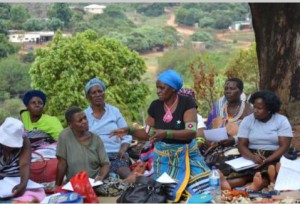 African women organize to reclaim agriculture against corporate takeover |
DISARMAMENT AND SECURITY |
HUMAN RIGHTS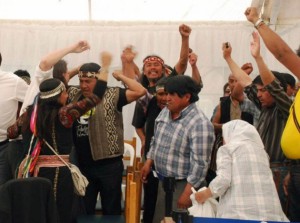 15 Indigenous Rights Victories That You Didn’t Hear About in 2015 |
|
TOLERANCE AND SOLIDARITY |
SUSTAINABLE DEVELOPMENT |
FREE FLOW OF INFORMATION |
EDUCATION FOR PEACE |
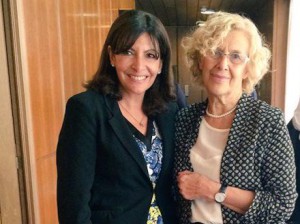 <
< 